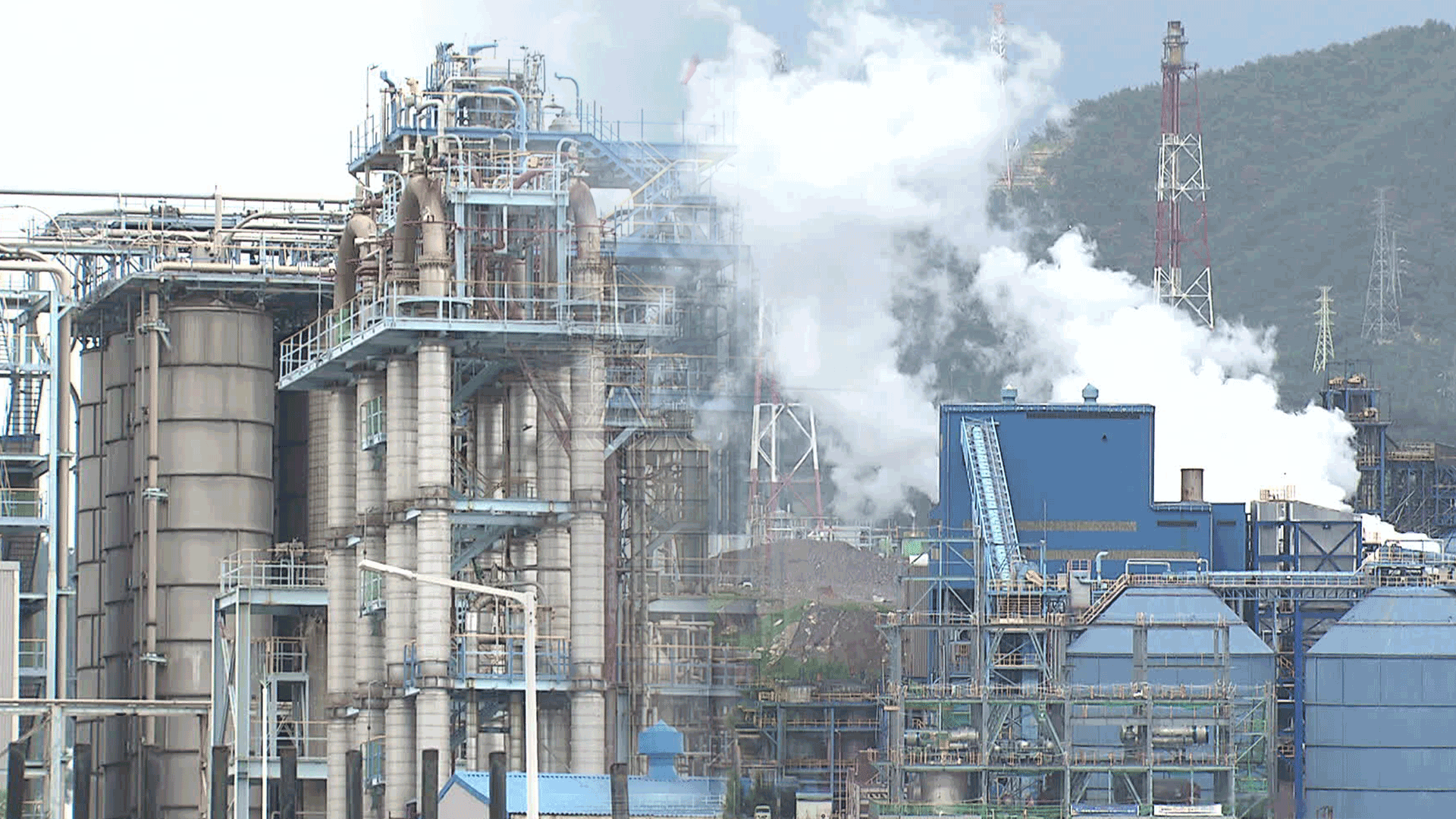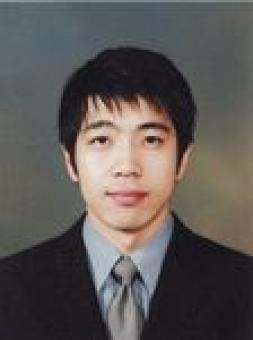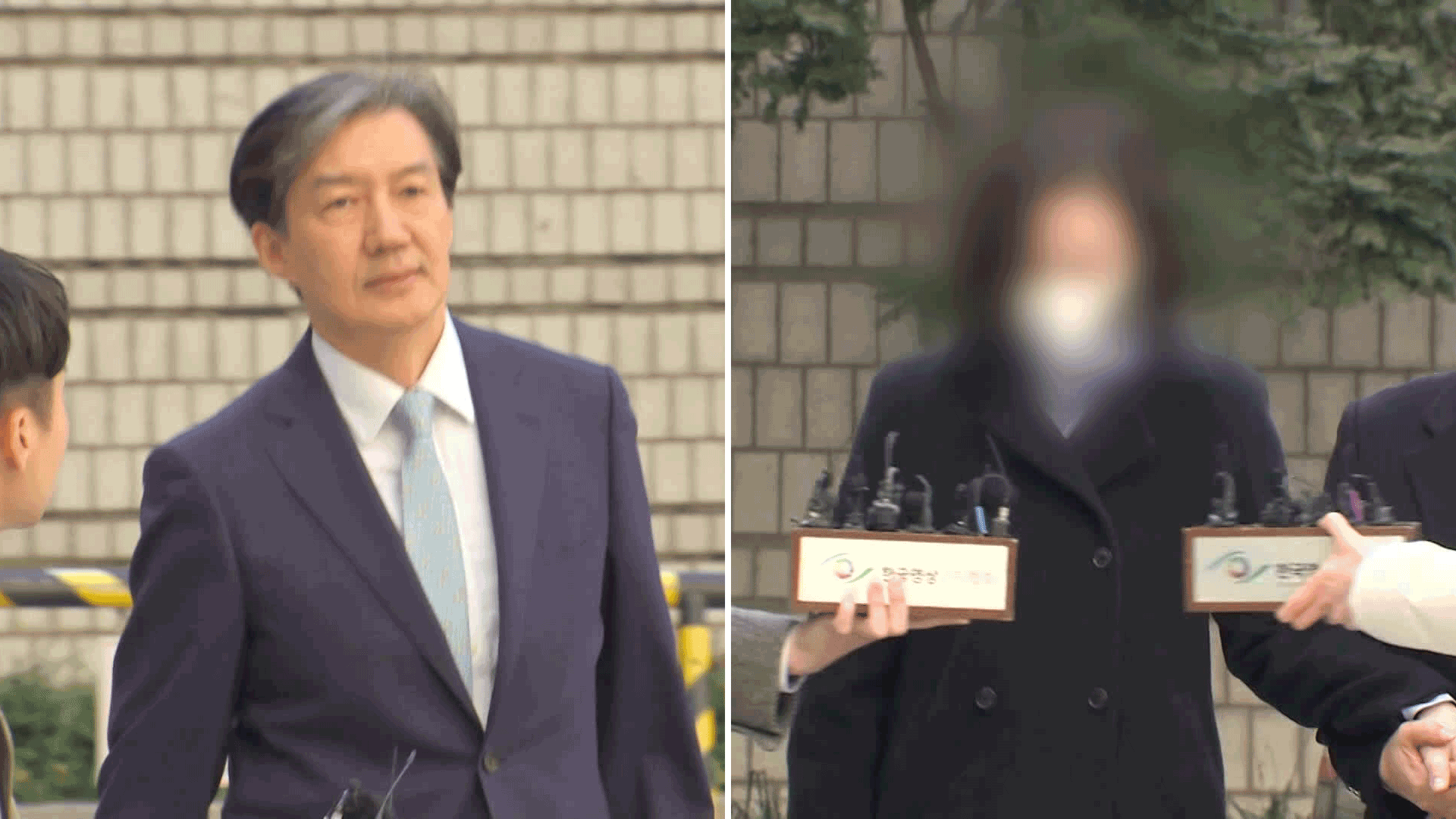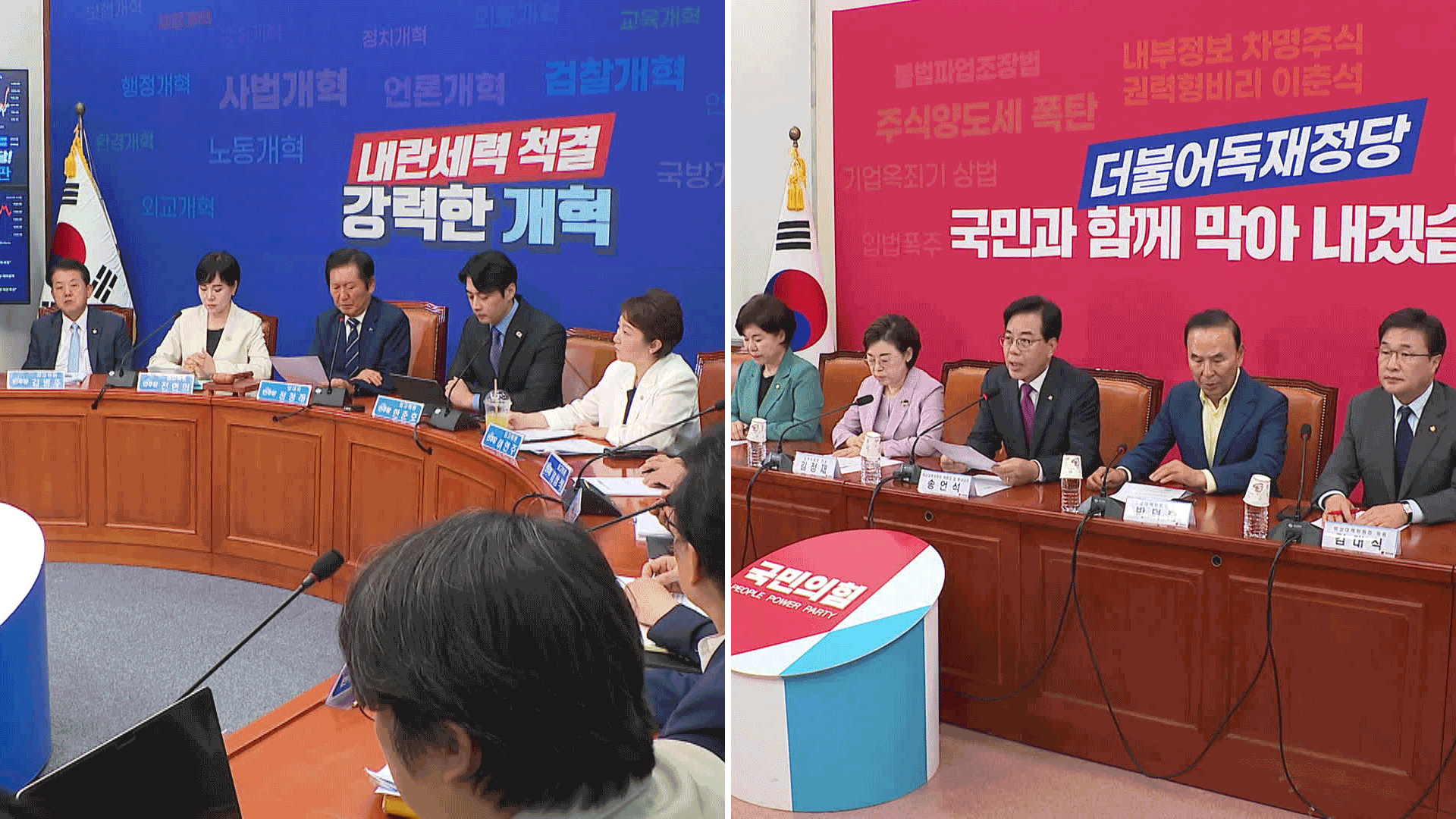[Anchor]
The petrochemical industry produces essential materials such as plastics, synthetic fibers, and rubber from compounds derived from crude oil and natural gas.
It is referred to as a representative foundational industry and has led our exports alongside semiconductors and automobiles.
However, this petrochemical sector has been shaken to its roots for a long time.
Since three years ago, operating profits have turned negative.
In the first half of this year, the operating losses of the four major domestic companies exceeded 470 billion won, nearly seven times that of last year.
Production lines in major industrial complexes have been halted one after another, and Yeocheon NCC recently faced a near bankruptcy situation.
Reporter Jeong Jae-woo has covered the petrochemical industry, which is on the brink.
[Report]
In 1999, Yeocheon NCC was established as a joint venture between Hanwha and DL Group.
Over a decade ago, it was the top company in terms of average annual salary, excluding the financial sector.
[KBS News 12/2011: "Last year, the company with the highest average salary for employees was Yeocheon NCC."]
It ranks third in domestic ethylene production capacity, and in 2017, its operating profit exceeded 1 trillion won, but it has been unable to escape the streak of losses since three years ago.
Due to a liquidity crisis, it received a capital injection of 200 billion won last March, but less than six months later, it faced another bankruptcy crisis.
As of August 8, it has suspended operations at its third plant in Yeosu.
The two major shareholders expressed their intention to support the shortfall of over 300 billion won, barely averting the bankruptcy crisis, but this is more of a stopgap measure.
[Kim Jong-ho/Chairman of the Yeocheon NCC Chemical and Food Workers' Union: "We've experienced the IMF crisis and the financial crisis, but I think this is the first time it's been this difficult..."]
The causes are economic recession and oversupply.
Exports have plummeted due to China's low-priced product flood, and instead, Chinese products have invaded the domestic market.
The Middle East, which emphasizes cost competitiveness, is also a competitor.
In the Yeosu industrial complex, part of the production lines of LG Chem and Lotte Chemical have been halted, while in Ulsan, production at ten factories, including Hyosung Chemical, has been suspended.
In the Daesan industrial complex in Chungcheongnam-do, HD Hyundai Oil Bank and Lotte Chemical are discussing a merger.
The industry is currently focusing on increasing high-value-added products, which are less affected by oversupply.
There are also calls for downsizing or mergers to endure the sluggishness.
[Kim Ji-hoon/BCG Partner/July/National Assembly Future Industry Forum: "It is difficult to say that we will survive by maintaining all capacities. Ultimately, some capacity adjustments will be inevitable."]
As the industry demands financial support, the government plans to announce measures to overcome the petrochemical crisis soon.
This is KBS News, Jeong Jae-woo.
The petrochemical industry produces essential materials such as plastics, synthetic fibers, and rubber from compounds derived from crude oil and natural gas.
It is referred to as a representative foundational industry and has led our exports alongside semiconductors and automobiles.
However, this petrochemical sector has been shaken to its roots for a long time.
Since three years ago, operating profits have turned negative.
In the first half of this year, the operating losses of the four major domestic companies exceeded 470 billion won, nearly seven times that of last year.
Production lines in major industrial complexes have been halted one after another, and Yeocheon NCC recently faced a near bankruptcy situation.
Reporter Jeong Jae-woo has covered the petrochemical industry, which is on the brink.
[Report]
In 1999, Yeocheon NCC was established as a joint venture between Hanwha and DL Group.
Over a decade ago, it was the top company in terms of average annual salary, excluding the financial sector.
[KBS News 12/2011: "Last year, the company with the highest average salary for employees was Yeocheon NCC."]
It ranks third in domestic ethylene production capacity, and in 2017, its operating profit exceeded 1 trillion won, but it has been unable to escape the streak of losses since three years ago.
Due to a liquidity crisis, it received a capital injection of 200 billion won last March, but less than six months later, it faced another bankruptcy crisis.
As of August 8, it has suspended operations at its third plant in Yeosu.
The two major shareholders expressed their intention to support the shortfall of over 300 billion won, barely averting the bankruptcy crisis, but this is more of a stopgap measure.
[Kim Jong-ho/Chairman of the Yeocheon NCC Chemical and Food Workers' Union: "We've experienced the IMF crisis and the financial crisis, but I think this is the first time it's been this difficult..."]
The causes are economic recession and oversupply.
Exports have plummeted due to China's low-priced product flood, and instead, Chinese products have invaded the domestic market.
The Middle East, which emphasizes cost competitiveness, is also a competitor.
In the Yeosu industrial complex, part of the production lines of LG Chem and Lotte Chemical have been halted, while in Ulsan, production at ten factories, including Hyosung Chemical, has been suspended.
In the Daesan industrial complex in Chungcheongnam-do, HD Hyundai Oil Bank and Lotte Chemical are discussing a merger.
The industry is currently focusing on increasing high-value-added products, which are less affected by oversupply.
There are also calls for downsizing or mergers to endure the sluggishness.
[Kim Ji-hoon/BCG Partner/July/National Assembly Future Industry Forum: "It is difficult to say that we will survive by maintaining all capacities. Ultimately, some capacity adjustments will be inevitable."]
As the industry demands financial support, the government plans to announce measures to overcome the petrochemical crisis soon.
This is KBS News, Jeong Jae-woo.
■ 제보하기
▷ 카카오톡 : 'KBS제보' 검색, 채널 추가
▷ 전화 : 02-781-1234, 4444
▷ 이메일 : kbs1234@kbs.co.kr
▷ 유튜브, 네이버, 카카오에서도 KBS뉴스를 구독해주세요!
- Petrochemical sector in crisis
-
- 입력 2025-08-12 00:23:39

[Anchor]
The petrochemical industry produces essential materials such as plastics, synthetic fibers, and rubber from compounds derived from crude oil and natural gas.
It is referred to as a representative foundational industry and has led our exports alongside semiconductors and automobiles.
However, this petrochemical sector has been shaken to its roots for a long time.
Since three years ago, operating profits have turned negative.
In the first half of this year, the operating losses of the four major domestic companies exceeded 470 billion won, nearly seven times that of last year.
Production lines in major industrial complexes have been halted one after another, and Yeocheon NCC recently faced a near bankruptcy situation.
Reporter Jeong Jae-woo has covered the petrochemical industry, which is on the brink.
[Report]
In 1999, Yeocheon NCC was established as a joint venture between Hanwha and DL Group.
Over a decade ago, it was the top company in terms of average annual salary, excluding the financial sector.
[KBS News 12/2011: "Last year, the company with the highest average salary for employees was Yeocheon NCC."]
It ranks third in domestic ethylene production capacity, and in 2017, its operating profit exceeded 1 trillion won, but it has been unable to escape the streak of losses since three years ago.
Due to a liquidity crisis, it received a capital injection of 200 billion won last March, but less than six months later, it faced another bankruptcy crisis.
As of August 8, it has suspended operations at its third plant in Yeosu.
The two major shareholders expressed their intention to support the shortfall of over 300 billion won, barely averting the bankruptcy crisis, but this is more of a stopgap measure.
[Kim Jong-ho/Chairman of the Yeocheon NCC Chemical and Food Workers' Union: "We've experienced the IMF crisis and the financial crisis, but I think this is the first time it's been this difficult..."]
The causes are economic recession and oversupply.
Exports have plummeted due to China's low-priced product flood, and instead, Chinese products have invaded the domestic market.
The Middle East, which emphasizes cost competitiveness, is also a competitor.
In the Yeosu industrial complex, part of the production lines of LG Chem and Lotte Chemical have been halted, while in Ulsan, production at ten factories, including Hyosung Chemical, has been suspended.
In the Daesan industrial complex in Chungcheongnam-do, HD Hyundai Oil Bank and Lotte Chemical are discussing a merger.
The industry is currently focusing on increasing high-value-added products, which are less affected by oversupply.
There are also calls for downsizing or mergers to endure the sluggishness.
[Kim Ji-hoon/BCG Partner/July/National Assembly Future Industry Forum: "It is difficult to say that we will survive by maintaining all capacities. Ultimately, some capacity adjustments will be inevitable."]
As the industry demands financial support, the government plans to announce measures to overcome the petrochemical crisis soon.
This is KBS News, Jeong Jae-woo.
The petrochemical industry produces essential materials such as plastics, synthetic fibers, and rubber from compounds derived from crude oil and natural gas.
It is referred to as a representative foundational industry and has led our exports alongside semiconductors and automobiles.
However, this petrochemical sector has been shaken to its roots for a long time.
Since three years ago, operating profits have turned negative.
In the first half of this year, the operating losses of the four major domestic companies exceeded 470 billion won, nearly seven times that of last year.
Production lines in major industrial complexes have been halted one after another, and Yeocheon NCC recently faced a near bankruptcy situation.
Reporter Jeong Jae-woo has covered the petrochemical industry, which is on the brink.
[Report]
In 1999, Yeocheon NCC was established as a joint venture between Hanwha and DL Group.
Over a decade ago, it was the top company in terms of average annual salary, excluding the financial sector.
[KBS News 12/2011: "Last year, the company with the highest average salary for employees was Yeocheon NCC."]
It ranks third in domestic ethylene production capacity, and in 2017, its operating profit exceeded 1 trillion won, but it has been unable to escape the streak of losses since three years ago.
Due to a liquidity crisis, it received a capital injection of 200 billion won last March, but less than six months later, it faced another bankruptcy crisis.
As of August 8, it has suspended operations at its third plant in Yeosu.
The two major shareholders expressed their intention to support the shortfall of over 300 billion won, barely averting the bankruptcy crisis, but this is more of a stopgap measure.
[Kim Jong-ho/Chairman of the Yeocheon NCC Chemical and Food Workers' Union: "We've experienced the IMF crisis and the financial crisis, but I think this is the first time it's been this difficult..."]
The causes are economic recession and oversupply.
Exports have plummeted due to China's low-priced product flood, and instead, Chinese products have invaded the domestic market.
The Middle East, which emphasizes cost competitiveness, is also a competitor.
In the Yeosu industrial complex, part of the production lines of LG Chem and Lotte Chemical have been halted, while in Ulsan, production at ten factories, including Hyosung Chemical, has been suspended.
In the Daesan industrial complex in Chungcheongnam-do, HD Hyundai Oil Bank and Lotte Chemical are discussing a merger.
The industry is currently focusing on increasing high-value-added products, which are less affected by oversupply.
There are also calls for downsizing or mergers to endure the sluggishness.
[Kim Ji-hoon/BCG Partner/July/National Assembly Future Industry Forum: "It is difficult to say that we will survive by maintaining all capacities. Ultimately, some capacity adjustments will be inevitable."]
As the industry demands financial support, the government plans to announce measures to overcome the petrochemical crisis soon.
This is KBS News, Jeong Jae-woo.
-
-

정재우 기자 jjw@kbs.co.kr
정재우 기자의 기사 모음
-
이 기사가 좋으셨다면
-
좋아요
0
-
응원해요
0
-
후속 원해요
0












![[단독]김 여사 인척집 ‘고가시계’ …구매자는 “김 여사 요청으로 구입…비화폰 연락”](/data/news/2025/08/11/20250811_FCY8SJ.png)


이 기사에 대한 의견을 남겨주세요.